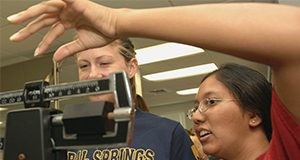Abstract
This EDIS document is the third in a series discussing how Extension can more efficiently encourage citizens to join the local food movement by effectively utilizing and leveraging opinion leaders. These articles look at the role opinion leaders, or individuals who have a large amount of influence within their respective social circles, can have on motivating their peers to join in purchasing local food. Written by Layne S. Marshall, Melissa R. Taylor, and Alexa J. Lamm, and published by the UF Department of Agricultural Education and Communication, August 2016.
AEC606/WC268: Opinion Leadership and the Perceived Economics of Local Food (ufl.edu)
References
Burnett, P., Kuethe, H., & Price, C. (2011). Consumer preference for locally grown produce: An analysis of willingness-to-pay and geographic scale. Journal of Agriculture, Food Systems, and Community Development. Retrieved from http://dx.doi.org/10.5304/jafscd.2011.021.013 https://doi.org/10.5304/jafscd.2011.021.013
Canning, P. A. (2011). A revised and expanded food dollar series: A better understanding of our food costs. ERR 114, United States Department of Agriculture, Economic Research Service. Retrieved from https://www.ers.usda.gov/webdocs/publications/44825/7759_err114.pdf
Darby, K., Batte, M. T., Ernst, S., & Roe, B. (2008). Decomposing local: A conjoint analysis of locally produced foods. American Journal of Agricultural Economics, 90(2), 476-86. doi: 10.1111/j.1467-8276.2007.01111.x https://doi.org/10.1111/j.1467-8276.2007.01111.x
Dunning, R. (2013). Research- based support and extension outreach for local food systems. Center for Environmental Farming Systems. Retrieved from https://cefs.ncsu.edu/wp-content/uploads/research-based-support-for-local-food-systems.pdf
Food retailing in the 21st century: Riding a consumer revolution. (2007). Food Marketing Institute. Retrieved from http://www.fmi.org/docs/media-backgrounder/foodretailing.pdf?sfvrsn=2
Hodges, A. W., & Stevens, T. J. (2013). Local food systems in Florida: Consumer characteristics and economic impacts. Unpublished report, Food and Resource Economics Department, University of Florida. Retrieved from http://www.fred.ifas.ufl.edu/pdf/economic-impact-analysis/Florida-statewide-local-food-survey-2-6-13.pdf
Kaplan, J. (2010). Eat local: Does your food travel more than you do? National Resources Defense Council. Retrieved from http://www.nrdc.org/health/foodmiles/
Keller, E. B., & Berry, J. L. (2003). The influential: One American in ten tells the other nine how to vote, where to eat, and what to buy. New York, NY: Simon & Schuster.
Land use and urban sprawl. (2012). Clean Water Action Council. Retrieved from http://www.cleanwateractioncouncil.org/issues/resource-issues/land-use-and-urban-sprawl/
Low, S. A., Adalja, A., Beaulieu, E., Key, N., Martinez, S., Melton, A., Perez, A., Ralston, K., Stewart, K., Suttles, S., Vogel, S., & Jablonski, B. R. (2015). Trends in US local and regional food systems: A report to Congress. AP-068, United States Department of Agriculture, Economic Research Service. Retrieved from https://www.ers.usda.gov/webdocs/publications/42805/51173_ap068.pdf
Low, S. A. & Vogel, S. (2011). Direct and intermediated marketing of local foods in the United States. United States Department of Agriculture, Economic Research Report Number 128. Retrieved from https://www.ers.usda.gov/webdocs/publications/44924/8276_err128_2_.pdf https://doi.org/10.2139/ssrn.2114361
Measuring the impact of public markets and farmers markets on local economies. (2015). Project for Public Spaces. Retrieved from http://www.pps.org/reference/measuring-the-impact-of-public-markets-and-farmers-markets-on-local-economies/
Nisbet, M. C., & Kotcher, J. E. (2009). A two-step flow of influence: Opinion-leader campaigns on climate change. Science Communication, 30(3), 328-354. doi: 10.1177/1075547008328797 https://doi.org/10.1177/1075547008328797
Nganje, W. E., Hughner, R. S., & Lee, N. E. (2011). State- branded programs and consumer preference for locally grown produce. Agricultural and Resource Economics Revitalization 40(1), 20-32. https://doi.org/10.1017/S1068280500004494
Rogers, E. M. (2003). The diffusion of innovations (5th ed.). New York, NY: Free Press.
Roper, C. G., & Rumble, J. N. (2014). Talking local: Florida consumers' reasons for purchasing local food. AEC511. Gainesville: University of Florida Institute of Food and Agricultural Sciences. http://edis.ifas.ufl.edu/wc176
Ruehle, J., & Goldblatt, M. (2013). National retailers need to get smart about local groceries: Buying into the local food movement. ATKearney. Retrieved from https://www.fmi.org/docs/default-source/webinars/perspectiveon-marketdynamics.pdf?sfvrsn=2
Rumble, J. N., & Roper, C. G. (2014). Talking local: Florida consumers' Fresh from Florida perceptions. AEC516. Gainesville: University of Florida Institute of Food and Agricultural Sciences. http://www.edis.ifas.ufl.edu/wc181
Sonntag, V. (2008). Why local linkages matter: Report findings from the local food economy study. Seattle, WA: Sustainable Seattle. Retrieved from http://www.farmlandinfo.org/sites/default/files/Why_Local_Matters_Seattle_1.pdf
Social Networking Use. (2015). [Graph illustration of percent of internet users]. Pew Research Center. Retrieved from http://www.pewresearch.org/data-trend/media-and-technology/social-networking-use/
Thilmany, D., Bond, C. A., & Bond, J. K. (2008). Going local: Exploring consumer behavior and motivations for direct food purchases. American Journal of Agricultural and Applied Economics 5, 1303-1309. doi: 10.1111/j.1467-8276.2008.01221.x https://doi.org/10.1111/j.1467-8276.2008.01221.x
Top 2016 food trends fuel evolution of menus. (2015). National Restaurant Association. Retrieved from https://www.garestaurants.org/news/top-2016-food-trends-fuel-evolution-of-menus
Valente, T. W., & Pumpuang, P. (2007). Identifying opinion leaders to promote behavior change. Health & Behavior, 34(6), 881-896. doi: 10.1177/1090198106297855 https://doi.org/10.1177/1090198106297855
Voicu, I., & Been, V. (2008). The effect of community gardens on neighboring property values. Real Estate Economics 36(2), 241-283. doi: 10.1111/j.1540-6229.2008.00213.x https://doi.org/10.1111/j.1540-6229.2008.00213.x

